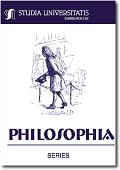DISEASE IN RROMA COMMUNITIES – AN ARGUMENT FOR PROMOTING MEDICAL TEAM CULTURAL COMPETENCE
DISEASE IN RROMA COMMUNITIES – AN ARGUMENT FOR PROMOTING MEDICAL TEAM CULTURAL COMPETENCE
Author(s): Ştefana Maria Moisa, Andrada Pârvu, Gabriel Roman, Angela Enache, Silvia Dumitraş, Beatrice Gabriela Ioan, Rodica Gramma, Radu ChiriţăSubject(s): Philosophy
Published by: Studia Universitatis Babes-Bolyai
Keywords: cultural competence; Rroma communities; Rroma patients; disease; coping.
Summary/Abstract: Doctor-patient cultural differences influence the patients’ attitudes towards medical care, their ability to cope with disease, their explanation about the cause of the disease, and the acceptance of medical treatment. Many studies emphasize that the concept of cultural competence was developed to promote the importance of adapting medical care to patient’s cultural background. As a consequence, many medical care systems and several medical organizations around the world have instituted cultural competence guidelines for their memberships. The Romanian Health System lacks a coherent policy in adapting medical care to patient’s cultural specificities although several ethnic minorities live in this country. This paper aims to analyse the beliefs of Rroma people about the significance and the cause of diseases and also the ethical and psychological issues raised by these beliefs. The paper presents the results of a qualitative research, which was part of an ample study that analysed for the first time in Romania perceptions and attitudes in regards to death, terminal stages of life and dignity within the Rroma, in the context of Romania’s health services. Our research reveals that Rroma patient from the communities we have done the research offer particular explanations and meanings to illness (for instance disease as impure, as punishment, as shame), some of them with a mystic meaning that can create problems with the patients’ coping mechanisms, and certain behaviours when facing with disease or specific attitudes towards the ill people (stigmatisation). Knowledge of Rroma cultural values and traditions could help the members of the medical team, including the professionals who offer psychosocial support (psychologists, social workers, priests) to avoid misunderstandings, prevent ethical dilemmas and provide better care, adapted to patient’s cultural particularities.
Journal: Studia Universitatis Babes-Bolyai - Philosophia
- Issue Year: 58/2013
- Issue No: Sp.Issue
- Page Range: 23-35
- Page Count: 13
- Language: English

